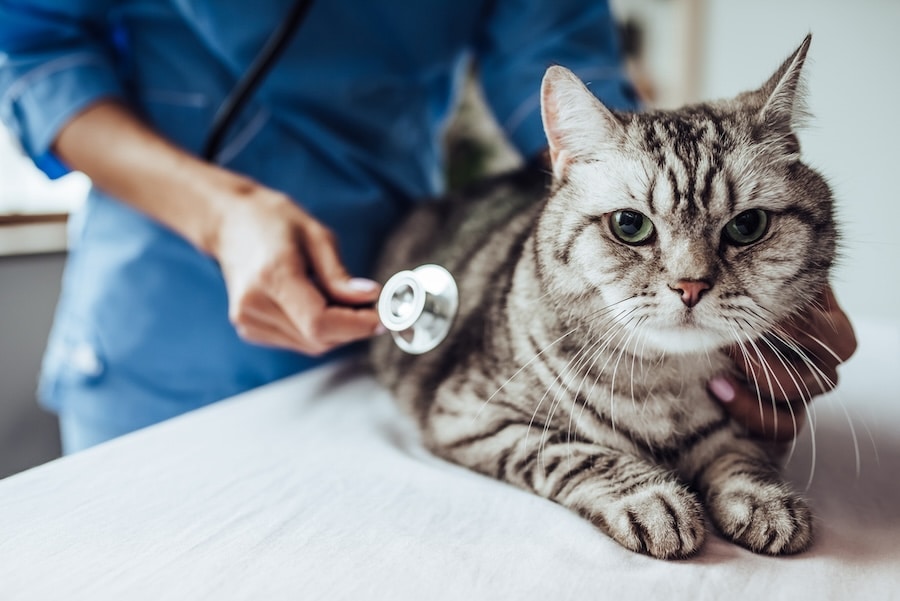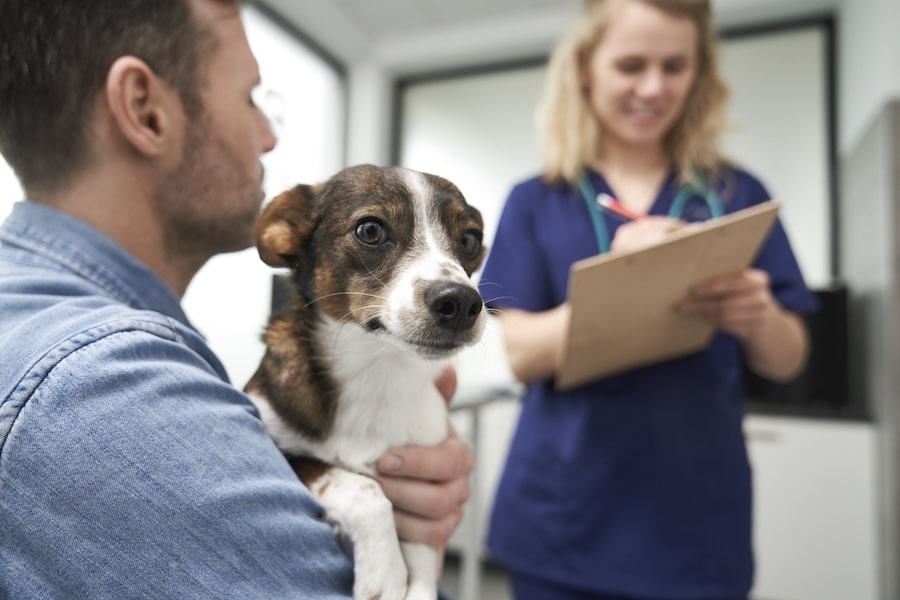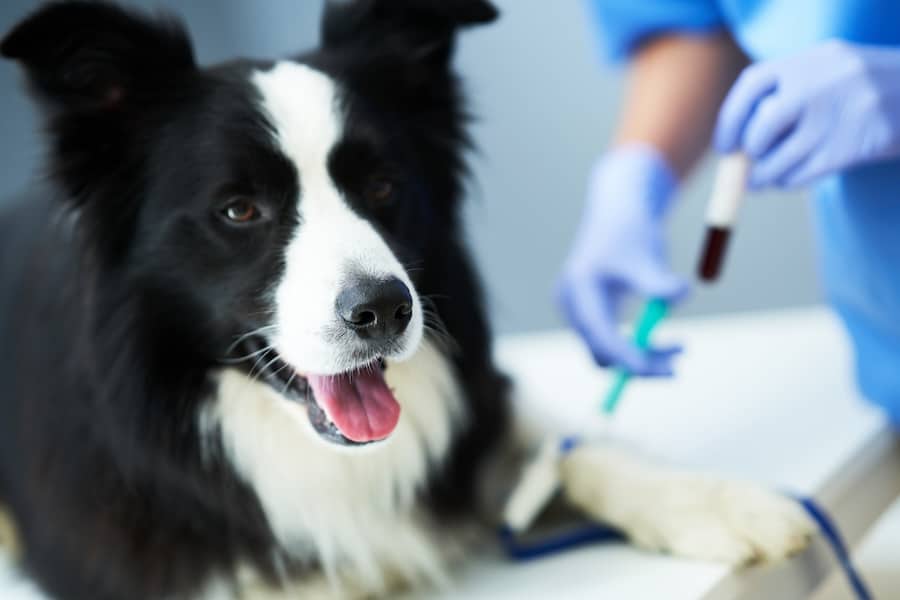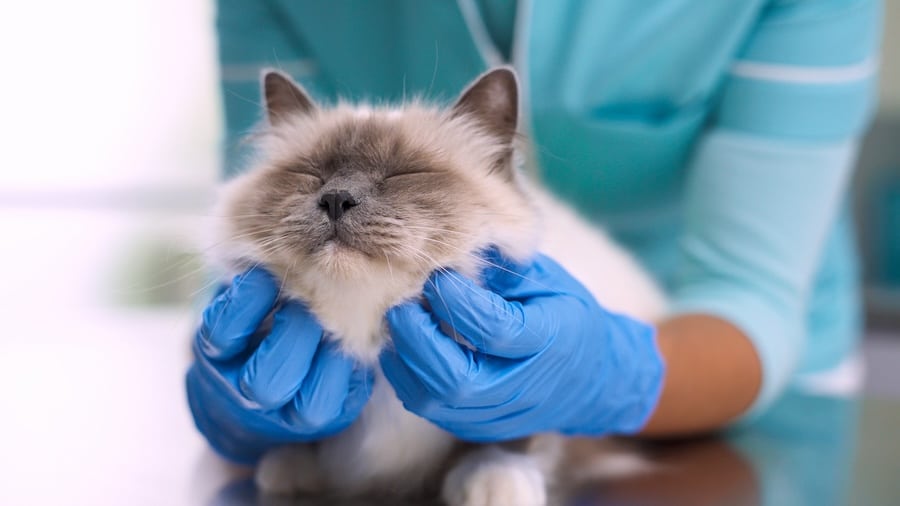Veterinary Oncology Services in Myrtle Beach, SC
Veterinary Oncology Services in Myrtle Beach, SC
What Is Oncology and Why Does My Pet Need It?
Advances in veterinary medicine have extended the lifespans of companion animals, but this also increases their risk of age-related diseases like cancer. A cancer diagnosis can be overwhelming, but Coastal Veterinary Care is here to provide compassionate, tailored cancer care. Our veterinary team uses cutting-edge diagnostics, such as diagnostic imaging and clinical pathology, to diagnose, stage, and treat cancer while maintaining your pet’s quality of life.
What to Expect at an Oncology Exam
An oncology exam provides a thorough evaluation of your pet’s condition, ensuring accurate diagnosis and personalized treatment recommendations to address their cancer care needs.
Prepare Ahead of Time:
- A veterinary oncologist’s office will request your pet’s medical history in advance. This includes lab work, biopsies, aspirates, and imaging tests.
- Providing complete records helps streamline the visit and prevents the need for repeating diagnostic tests.
Check-In Process:
- Upon arrival, you will be greeted by a veterinary technician or assistant who will guide you to an exam room.
- They will take your pet’s vital signs and gather information about their medical history, current medications, and any observed clinical signs.
Physical Exam and Discussion:
- The oncologist will perform a thorough physical exam to assess your pet’s condition.
- Afterward, the oncology team will discuss your pet’s cancer diagnosis, recommend additional diagnostics if needed, and present appropriate treatment options, such as radiation therapy, chemotherapy drugs, or palliative care.


What to Expect at an Oncology Exam
An oncology exam provides a thorough evaluation of your pet’s condition, ensuring accurate diagnosis and personalized treatment recommendations to address their cancer care needs.
Prepare Ahead of Time:
- A veterinary oncologist’s office will request your pet’s medical history in advance. This includes lab work, biopsies, aspirates, and imaging tests.
- Providing complete records helps streamline the visit and prevents the need for repeating diagnostic tests.
Check-In Process:
- Upon arrival, you will be greeted by a veterinary technician or assistant who will guide you to an exam room.
- They will take your pet’s vital signs and gather information about their medical history, current medications, and any observed clinical signs.
Physical Exam and Discussion:
- The oncologist will perform a thorough physical exam to assess your pet’s condition.
- Afterward, the oncology team will discuss your pet’s cancer diagnosis, recommend additional diagnostics if needed, and present appropriate treatment options, such as radiation therapy, chemotherapy drugs, or palliative care.

Steps to Take When Your Pet Is Diagnosed With Cancer
1. Understand Your Pet's Medical History
- Gather details about your pet’s prior illnesses, treatments, and diagnostic tests.
- Share this history with the oncology team to help them understand the nature of the cancer and its impact on your pet’s overall health.
2. Collaborate with Veterinary Oncology Services
- Work with your pet’s oncology team and primary care veterinarian to develop a personalized treatment plan.
3. Explore Treatment Options
- Review potential treatments such as chemotherapy, radiation therapy, or surgical oncology.
- Ask about any available clinical trials that may be suitable for your pet.
4. Align Treatment with Your Goals
- Ensure that each step of the plan is tailored to provide the best outcome for your pet while considering your preferences and goals.

Steps to Take When Your Pet Is Diagnosed With Cancer
1. Understand Your Pet's Medical History
- Gather details about your pet’s prior illnesses, treatments, and diagnostic tests.
- Share this history with the oncology team to help them understand the nature of the cancer and its impact on your pet’s overall health.
2. Collaborate with Veterinary Oncology Services
- Work with your pet’s oncology team and primary care veterinarian to develop a personalized treatment plan.
3. Explore Treatment Options
- Review potential treatments such as chemotherapy, radiation therapy, or surgical oncology.
- Ask about any available clinical trials that may be suitable for your pet.
4. Align Treatment with Your Goals
- Ensure that each step of the plan is tailored to provide the best outcome for your pet while considering your preferences and goals.

Types of Cancer Treatment
Designing a cancer treatment plan for your pet involves a personalized approach based on their specific condition and needs. Treatment options may include radiation therapy, chemotherapy, surgical oncology, or palliative care, chosen in collaboration with you and your oncology team to align with your goals. We provide advanced therapies, manage side effects, and perform additional diagnostics as needed, ensuring your pet receives the best possible care and support.
Chemotherapy:
Often combined with surgery or used alone, chemotherapy treats cancers that are likely to spread. A veterinary oncologist will customize plans for your pet, with side effects typically being minimal and thoroughly discussed before starting therapy.
Surgery:
Surgery is a key component for many cancers, focusing on precise tumor removal. We do our best to ensure most pets recover quickly.
Radiation Oncology:
Radiation oncology is used alongside surgery by veterinary oncology specialists for localized cancers or as palliative care for advanced cases. This therapy offers highly accurate treatment with our advanced linear accelerator, reducing side effects by sparing healthy tissue.
Clinical Trials:
Participation in clinical trials for advanced cancer treatment for pets is also an option. If eligible, your pet may benefit from these trials, which often offer financial incentives to help offset treatment costs.

Types of Cancer Treatment
Designing a cancer treatment plan for your pet involves a personalized approach based on their specific condition and needs. Treatment options may include radiation therapy, chemotherapy, surgical oncology, or palliative care, chosen in collaboration with you and your oncology team to align with your goals. We provide advanced therapies, manage side effects, and perform additional diagnostics as needed, ensuring your pet receives the best possible care and support.
Chemotherapy:
Often combined with surgery or used alone, chemotherapy treats cancers that are likely to spread. A veterinary oncologist will customize plans for your pet, with side effects typically being minimal and thoroughly discussed before starting therapy.
Surgery:
Surgery is a key component for many cancers, focusing on precise tumor removal. We do our best to ensure most pets recover quickly.
Radiation Oncology:
Radiation oncology is used alongside surgery by veterinary oncology specialists for localized cancers or as palliative care for advanced cases. This therapy offers highly accurate treatment with our advanced linear accelerator, reducing side effects by sparing healthy tissue.
Clinical Trials:
Participation in clinical trials for advanced cancer treatment for pets is also an option. If eligible, your pet may benefit from these trials, which often offer financial incentives to help offset treatment costs.

Why Choose Coastal Veterinary Care for Pet Cancer Evaluation
At Coastal Veterinary Care, we understand how overwhelming a cancer diagnosis for your pet can be. That’s why our dedicated veterinary technicians are committed to providing compassionate, comprehensive exams tailored to your pet’s unique needs. Accredited by the American Animal Hospital Association (AAHA), we adhere to the highest standards in veterinary oncology, ensuring your pet receives exceptional treatment every step of the way.
Our team combines expertise with cutting-edge tools like digital cytology, diagnostic imaging, and same-day lab results to provide quick and accurate diagnoses. We will help you develop a personalized treatment plan, including options like referral for chemotherapy and/or radiation therapy; or providing palliative care. Transparency is key—we provide detailed cost estimates and ongoing education to help you make informed decisions for your pet’s care.
Coastal Veterinary Care is here to support you every step of the way. Contact us today to begin your pet’s cancer treatment.

Why Choose Coastal Veterinary Care for Pet Cancer Evaluation
At Coastal Veterinary Care, we understand how overwhelming a cancer diagnosis for your pet can be. That’s why our dedicated veterinary technicians are committed to providing compassionate, comprehensive exams tailored to your pet’s unique needs. Accredited by the American Animal Hospital Association (AAHA), we adhere to the highest standards in veterinary oncology, ensuring your pet receives exceptional treatment every step of the way.
Our team combines expertise with cutting-edge tools like digital cytology, diagnostic imaging, and same-day lab results to provide quick and accurate diagnoses. We will help you develop a personalized treatment plan, including options like referral for chemotherapy and/or radiation therapy; or providing palliative care. Transparency is key—we provide detailed cost estimates and ongoing education to help you make informed decisions for your pet’s care.
Coastal Veterinary Care is here to support you every step of the way. Contact us today to begin your pet’s cancer treatment.
